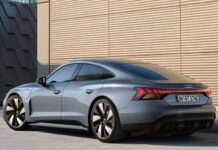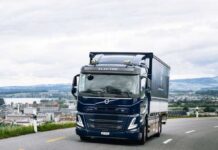
World Environment Day 2024 provides a vital platform to spotlight the pressing environmental challenges our planet faces and to celebrate progress in sustainability. This year’s World Environment Day campaign focuses on land restoration, desertification and drought resilience; hence the apt slogan – “Our land. Our future. We are #GenerationRestoration.” In India, businesses are at the forefront of this movement, with India Inc. playing a pivotal role in driving eco-friendly initiatives. Across diverse sectors, companies are embracing green technologies, cutting carbon footprints, and championing renewable energy solutions.
From breakthroughs in electric vehicle technology to sustainable manufacturing practices, India Inc.’s commitment to environmental stewardship paves the way for a greener, healthier future. This collective effort addresses climate change and motivates global action towards a more sustainable world.
Industry leaders share their perspectives and commitment to the cause of green development:
Mr. Anirudh Bhuwalka, CEO, Blue Energy Motors

“Green trucking is not just a necessity but an opportunity for India to lead in sustainable transportation. With the nation’s freight transportation sector expanding rapidly to meet the demands of a growing economy, the shift towards cleaner, more efficient technologies like LNG-powered trucks is crucial. Currently, India’s road transport sector, dominated by heavy- and medium-duty trucks, is responsible for a significant portion of transport-related CO2 emissions. As the number of trucks on our roads is projected to more than quadruple by 2050, adopting green trucking solutions becomes imperative to mitigate environmental impacts. The Government of India has set ambitious clean energy targets, including achieving 500 GW of renewable energy capacity by 2030 and reducing carbon intensity by less than 45% by the end of the decade. In this context, green trucking can play a pivotal role. By transitioning to LNG-powered trucks, we can significantly cut down on CO2 emissions from the commercial vehicles sector, which currently contributes up to 40% of road emissions. This transition could lead to cumulative CO2 savings of 2.8 to 3.8 gigatonnes through 2050, an impact equivalent to or greater than India’s entire economy-wide annual greenhouse gas emissions today. LNG technology offers a viable pathway to decarbonize the heavy-duty trucking industry while also presenting substantial economic opportunities. If we achieve a 50% conversion of the fleet to LNG, the reduction in carbon footprint would be immense, aligning perfectly with India’s net-zero vision for 2070. Green trucking is more than a technological shift; it’s a strategic imperative that supports the broader goals of economic growth, environmental stewardship, and energy security.”
Mr. Vinod Aggarwal, MD & CEO, VECV

India’s auto industry is transitioning its energy mix towards cleaner alternate fuels in line with the nation’s Net Zero commitments. Our approach at VECV is through application-specific alternate fuel drivelines, smart manufacturing processes, and smart support solutions contributing to the rapid modernization of the Indian logistics ecosystem. We are committed to deliver on a diverse array of possibilities, including Battery Electric Vehicles, Hydrogen Internal Combustion Engines, and fuel cell technology, which will be introduced as the market becomes ready. In addition to this, we also believe that sustainability is about efficient asset utilization. All Volvo and Eicher trucks and buses are backed by a 100% connected ecosystem to deliver on our promise of productivity and superior uptime for our customers.
Aligned with World Environment Day 2024’s focus on ‘Our Land. Our Future. We are #GenerationRestoration,’ VECV has been actively introducing cleaner vehicles and sustainable practices across operations. In 2020, VECV’s manufacturing facility in Bhopal was the first in the CV industry to be established with Industry 4.0 standards. We reaffirm our dedication to reducing our carbon footprint aligned with the broader imperative of a greener and more sustainable future.
Mr. Vikram Handa, MD, Epsilon Group

“At Epsilon, we believe that our commitment to sustainability not only drives our business forward but also sets a benchmark for the industry. We remain steadfast in our mission to innovate and lead the way towards a cleaner, more sustainable future.
Drawing from our experience at Epsilon, adopting lifecycle analysis early in product development has been a game changer. This approach has enabled us to accurately identify our carbon footprints and detect any leakages, leading to the design of more compliant facilities. It has also allowed us to focus on Scope 3 emissions with our suppliers, an area that is often overlooked.
Embedding sustainable practices at the plant design and engineering level is key to building world-class facilities. Most of our clients across industries, such as aluminium, tire, and electric vehicles, are actively seeking low-carbon solutions and expect their suppliers to align with these objectives. Contrary to common belief, sustainable practices do not necessarily increase costs; initial capital investments pay off in the long run by enhancing product positioning. Proof points such as Zero Liquid Discharge facility saving 24 million litres of water, and reduction in greenhouse gas emission intensity by 90% by utilizing waste gases to power our 17MW captive power plant are guiding factors into our industry. On this World Environment Day, we reaffirm our commitment to a greener future through relentless innovation and sustainable practices.”
Mr Maxson Lewis, Founder & CEO, Magenta Mobility

Global warming is real and it is here. Many Indian cities are already facing the brunt. This is no longer a risk, it is an issue which demands the urgent need for collective efforts to mitigate its impact. Our planet’s well-being and future depends on our ability to switch to sustainable and eco-friendly solutions – electric vehicles being one of them.
While significant progress has been made, with businesses and governments recognizing electric vehicles as the future, more awareness is needed to ensure wider consumer adoption. However, consumer apprehension persists due to misinformation surrounding factors like range anxiety and charging infrastructure availability. Industry leaders, stakeholders and the government must collaborate to raise awareness, dispel myths, and showcase electric mobility’s economic and environmental benefits. We must move past debates and embrace this inevitable shift wholeheartedly.
On this World Environment Day, Magenta Mobility reaffirms our commitment to decarbonizing logistics through our safe, smart, and sustainable mobility solutions. Our vision is to help businesses adopt electric vehicles and transition to zero-emission transportation. With our comprehensive and innovative service portfolio encompassing Logistics, Charging, and Technology, we empower businesses to achieve their sustainability goals, thereby contributing to the restoration of our planet.
Today, our fleet of 2,000+ vehicles have traveled 16 million clean kilometers across 17 cities and managed to keep 430 metric tons of carbon dioxide out of our air. Through our ambitious ‘Ab Ki Baar Dus Hazaar’ program, we aim to deploy 10,000 electric vehicles by September 2025, significantly amplifying our environmental impact.
Mr. Anil Gupta, Vice Chairman, Yokohama India

“At Yokohama, we embark on every journey as a collaborative step with sustainability. Aligned with the UN’s Sustainable Development Goals, we are committed to reducing CO2 emissions by 38% by 2030 and achieving net zero emissions by 2050. Our manufacturing practices reflect this dedication; we invest significantly in conserving natural resources, increasing our utilization of renewable energy, and advocating sustainable methods throughout our supply chain. Notably, we stand out as one of the leading tire manufacturers in the Off-Highway Tires Sector with remarkably low water consumption in our operations.
Taking our corporate social responsibility seriously, we actively participate in various initiatives such as Rain Water Harvesting projects and Forever Forest programmes near our factories. In India alone, we’ve planted over 200,000 trees, contributing to the verdant landscape around our facilities. This effort involves our employees, customers, visitors, local government bodies, communities, and even school children. The Yokohama Group globally has a collective aim to plant 1.3 million trees worldwide by 2030, fostering a greener future for all.”
Ms. Manjula Girish, Business Head-EV Charging & Photovoltaic Inverter Division, Delta Electronics India

“Electric Vehicles (EVs) are a transformative force in the fight against climate change. By significantly reducing greenhouse gas emissions compared to traditional combustion engines, EVs play a critical role in mitigating global warming. At Delta Electronics India, we are committed to advancing EV technology and infrastructure, contributing to a cleaner, more sustainable future. Our innovations in EV charging solutions are designed to support the widespread adoption of electric mobility, further reducing our carbon footprint and fostering a healthier planet.
World Environment Day serves as a critical platform for the EV industry to showcase its commitment to a sustainable future. As the mission of the EV industry synchronizes with the mission of World Environment Day attributing to sustainability, emission reduction and climate change It’s a day to celebrate the progress we have made in electrifying transportation and highlight the positive impact EVs can have on our planet. At Delta Electronics India, we see World Environment Day as an opportunity to raise awareness, inspire action, and accelerate the transition towards cleaner Transportation solutions.”
Mr. Sameer Aggarwal, Founder & CEO – Revfin Services

“On this World Environment Day 2024, let us commit to the urgent task of restoring our land, fighting desertification, and enhancing drought resilience. Our land is our future, and our collective actions today will shape the health and prosperity of our planet for generations to come. We must understand the critical impact our choices have on the environment and prioritize sustainable practices to heal and protect our land,” said Mr. Sameer Aggarwal, Founder & CEO – Revfin Services
“At Revfin, our mission is to drive sustainable mobility through innovative financing solutions within the EV ecosystem. We are proud to support the ‘Shoonya – Zero Pollution Mobility’ campaign by NITI Aayog, which seeks to improve air quality by promoting the widespread use of electric vehicles (EVs) and advancing India’s transition to clean energy. By fostering awareness and embracing sustainable practices like utilizing green energy and EVs, we can secure a healthier planet. Let us pledge to make choices that restore and protect our land, ensuring a sustainable legacy for future generations. This day inspires us to embrace our role as #GenerationRestoration and take meaningful actions towards a more resilient and sustainable world.”
Mr. VG Anil, CEO, ARENQ

“On World EV Day, we celebrate the strides we’ve made in sustainable transportation. Our commitment to innovation in EV battery technology drives us toward a greener future. Together, we can reduce emissions, enhance energy efficiency, and ensure a cleaner planet for generations to come. Let’s continue to push the boundaries of what’s possible in the world of electric vehicles.”
Mr. Hyder Khan, CEO, Godawari Electric Motors

“The transition to electric vehicles (EVs) plays a pivotal role in mitigating climate change. EVs produce zero tailpipe emissions, drastically reducing air pollutants compared to traditional internal combustion engine vehicles. This shift is crucial in decreasing the levels of greenhouse gases, primarily carbon dioxide, which are major contributors to global warming. Additionally, EVs align with renewable energy sources, further amplifying their positive environmental impact. When powered by electricity from renewable sources like wind, solar, and hydro, EVs can achieve near-zero emissions throughout their lifecycle. This integration supports global efforts to transition towards a more sustainable energy ecosystem.
At Godawari Electric Motors, we are committed to driving this transformation by producing efficient and affordable electric 2-wheelers and 3-wheelers. Our goal is to provide eco-friendly transportation options that contribute to cleaner air and a healthier planet, while also addressing the mobility needs of a growing population. Together, we can pave the way for a greener, more sustainable future. World Environment Day holds significant importance for the electric vehicle (EV) industry. It serves as a global platform to highlight the urgent need for sustainable practices and environmental stewardship, aligning perfectly with the core values and mission of the EV industry. This day emphasizes EVs’ critical role in reducing greenhouse gas emissions, combating air pollution, and mitigating climate change.
For companies like us (Godawari Electric Motors), World Environment Day is an opportunity to showcase our commitment to creating a greener future through innovative electric mobility solutions. It allows us to engage with consumers, policymakers, and stakeholders to raise awareness about the environmental benefits of EVs, such as reduced carbon footprints and decreased reliance on fossil fuels. Moreover, this day provides a platform to discuss advancements in EV technology, share success stories, and promote the adoption of electric Vehicles. By highlighting our efforts and the positive impact of EVs on the environment, we can inspire collective action towards a more sustainable and eco-friendly transportation landscape.”
Mr. Akash Gupta, Co-Founder and CEO, Zypp Electric

“Electric Vehicles (EVs) have a transformative impact on climate change, and Zypp Electric is leading this charge in India. As the country’s premier tech-enabled EV-as-a-Service platform, we are committed to achieving zero emissions and creating a carbon-free India. Our ecosystem of IoT and AI-enabled electric scooters, combined with strategically placed battery swapping stations, ensures efficient, low-maintenance, and high-performance last-mile delivery. This sustainable model not only lowers delivery costs but also significantly reduces urban pollution. With over 20,000 EVs and delivery pilots, we deliver packages in a manner that is both eco-friendly and cost-effective. By replacing traditional fuel-based vehicles, we are cutting down on greenhouse gas emissions and making cities cleaner and healthier. Through our innovative solutions, Zypp Electric is playing a crucial role in mitigating climate change and driving a greener future.
At Zypp Electric, World Environment Day isn’t just a celebration – it’s a call to action for the EV industry. Transportation is a major source of pollution, and EVs are the key to a cleaner future. This day highlights the urgency of tackling climate change. For the EV industry, it’s a chance to showcase the transformative power of electric mobility. We can raise awareness about the environmental benefits of EVs – reduced emissions, cleaner air, and quieter cities. World Environment Day also unites stakeholders – policymakers, businesses, and citizens. It’s an opportunity to collaborate on building a robust EV ecosystem – from charging infrastructure to battery recycling. We are proud to be at the forefront of this revolution. Our sustainable last-mile delivery solutions demonstrate the positive impact EVs can have. On World Environment Day, let’s reiterate our commitment to a greener future, one electric mile at a time.”








